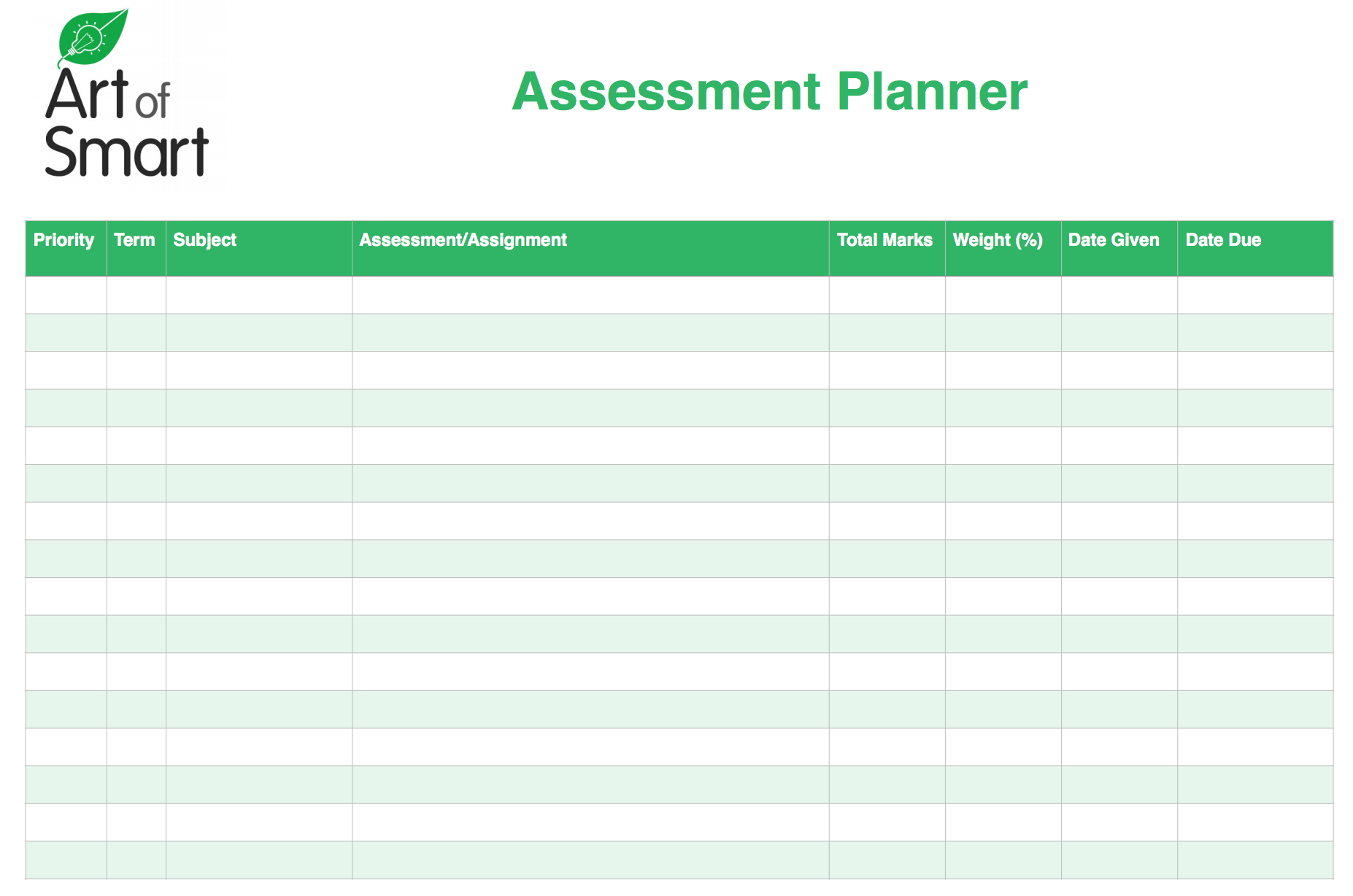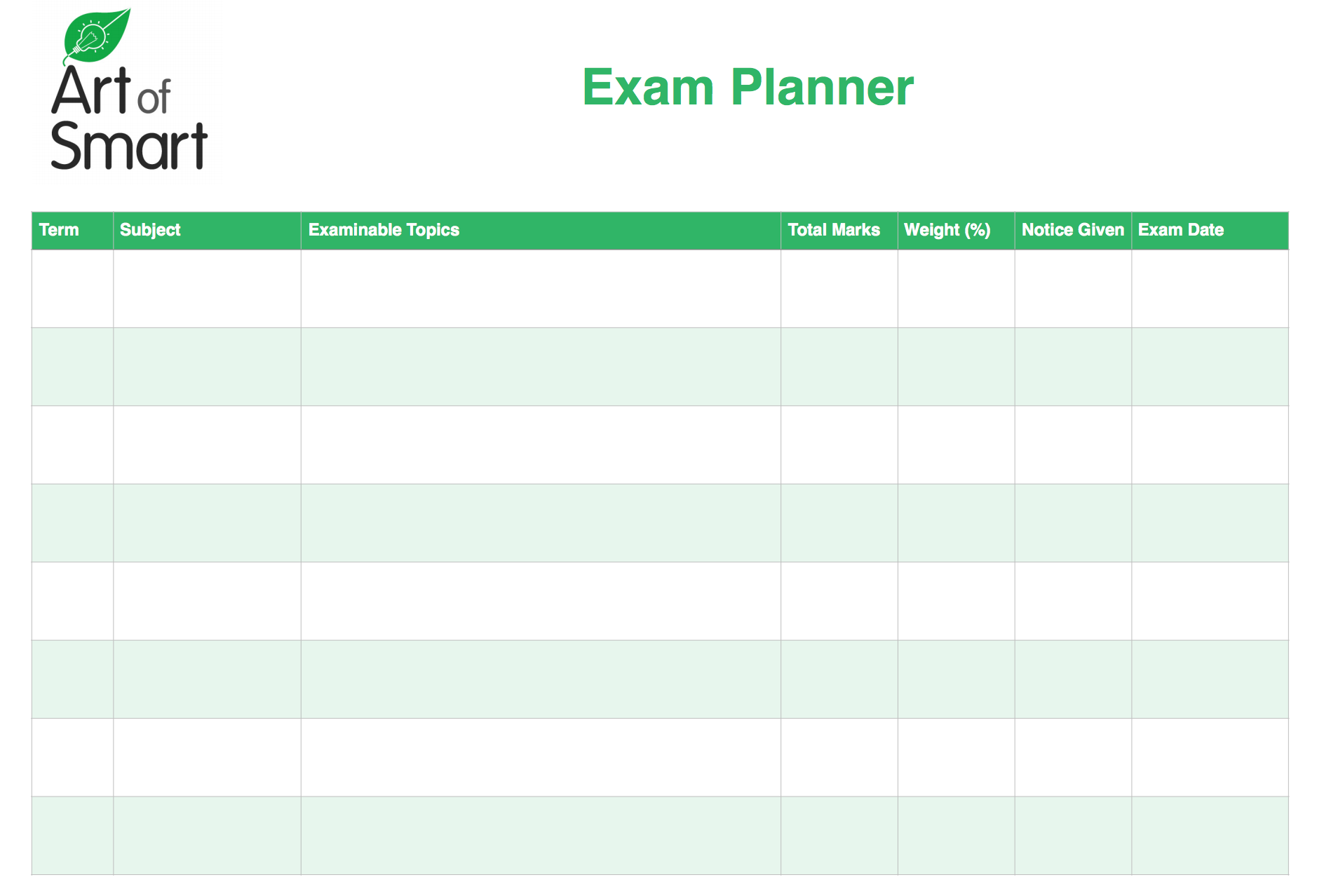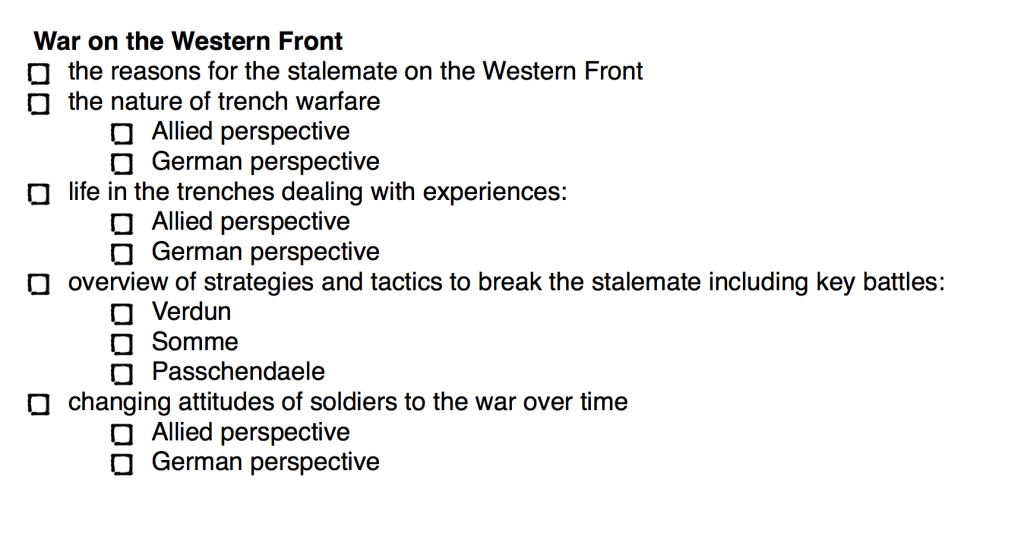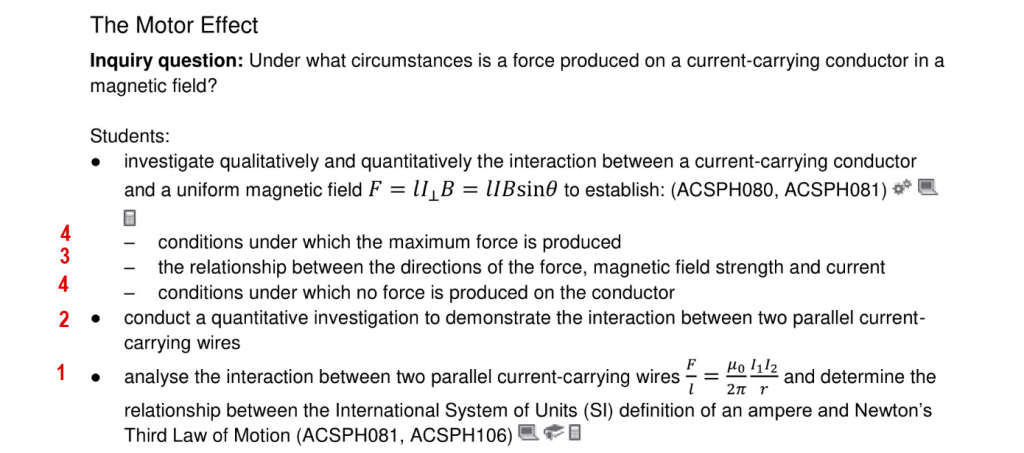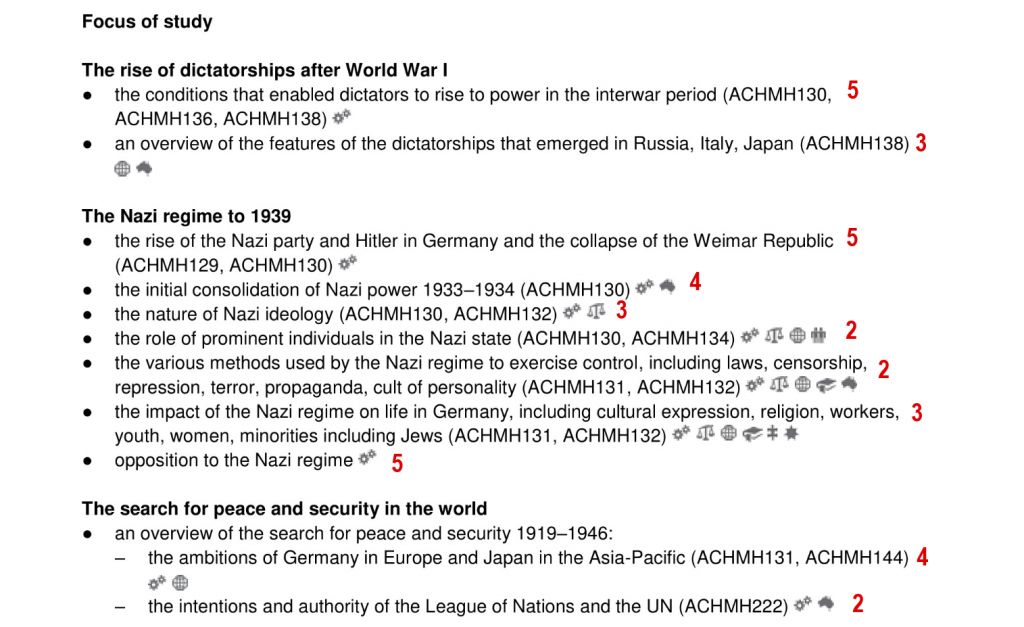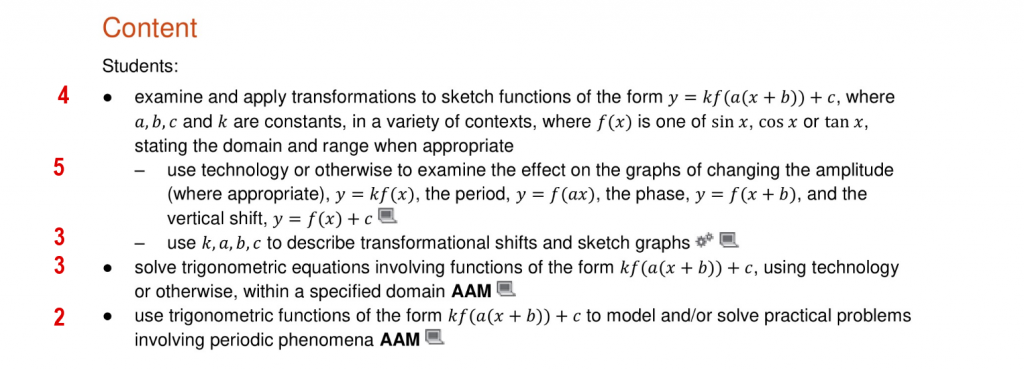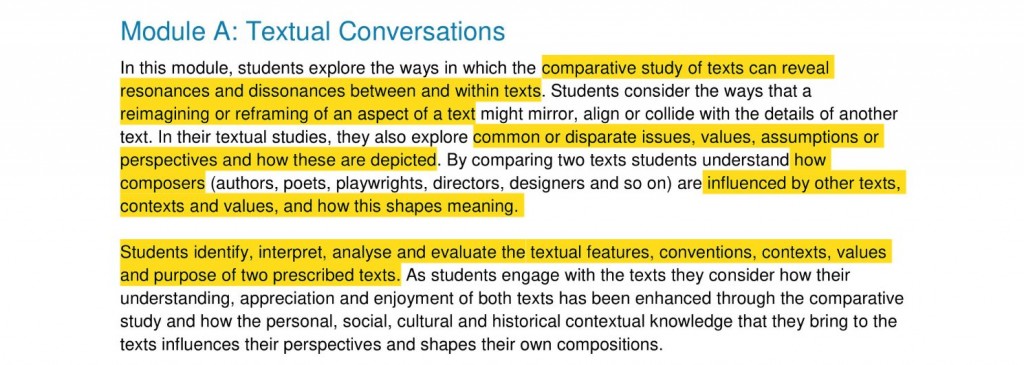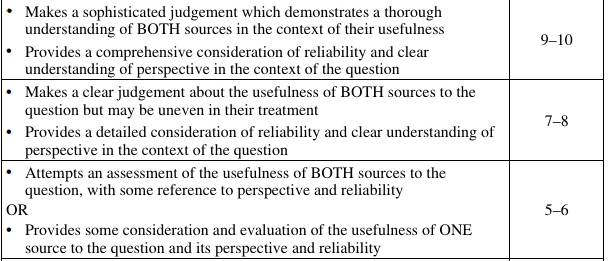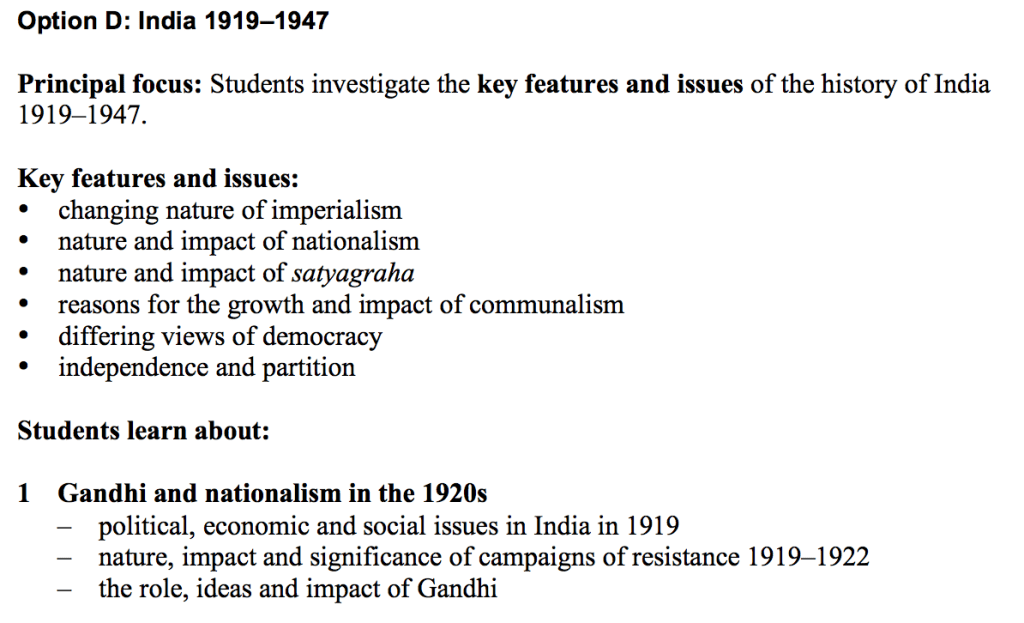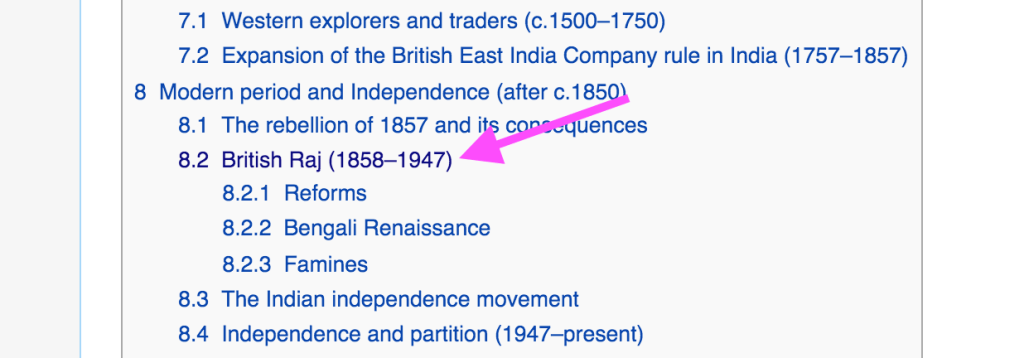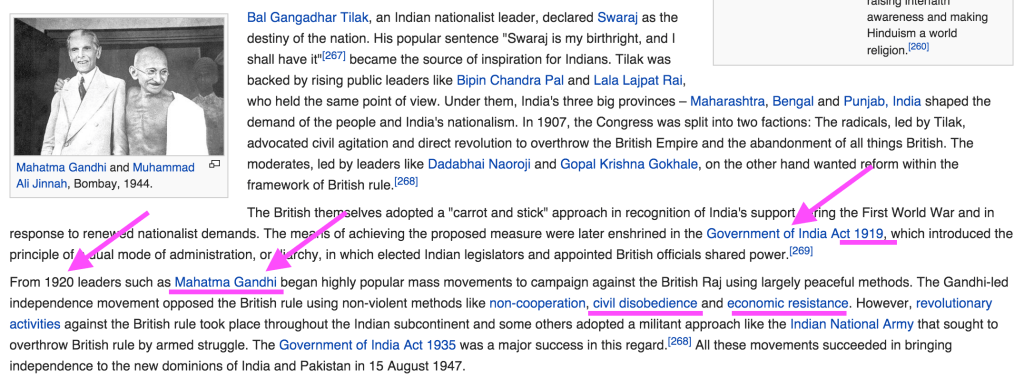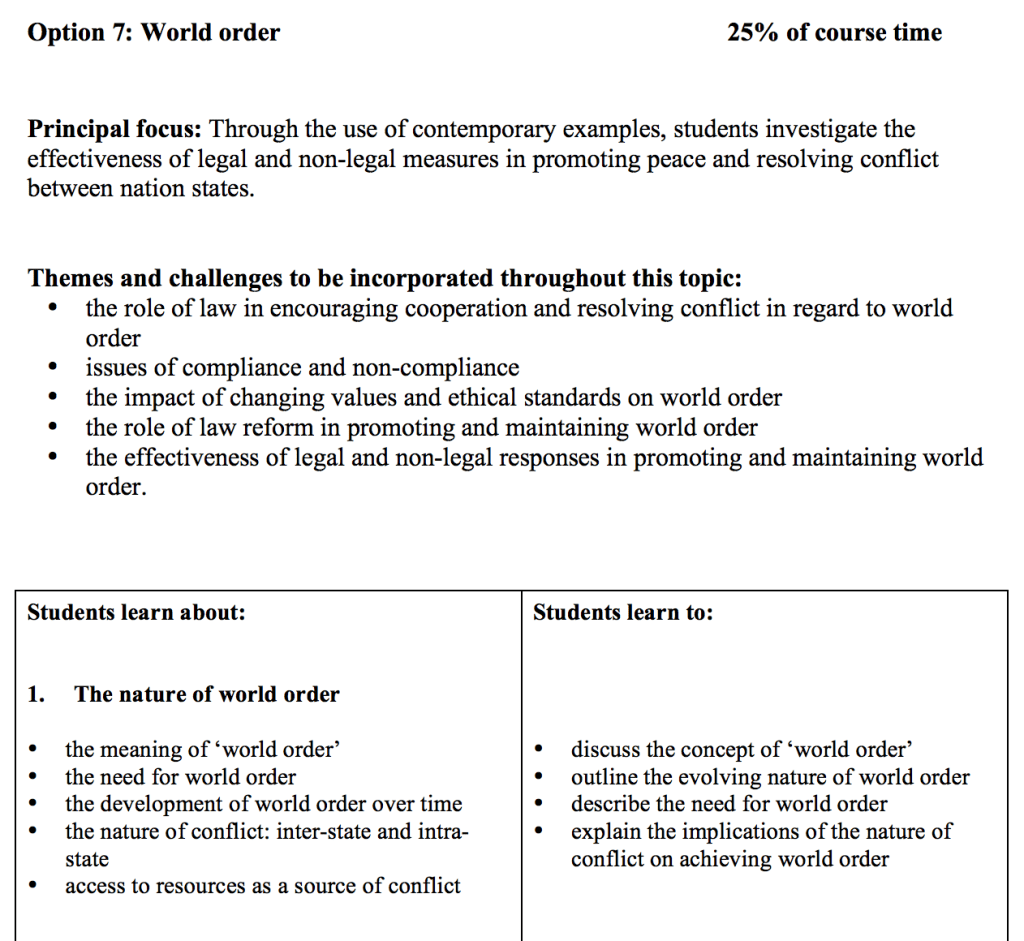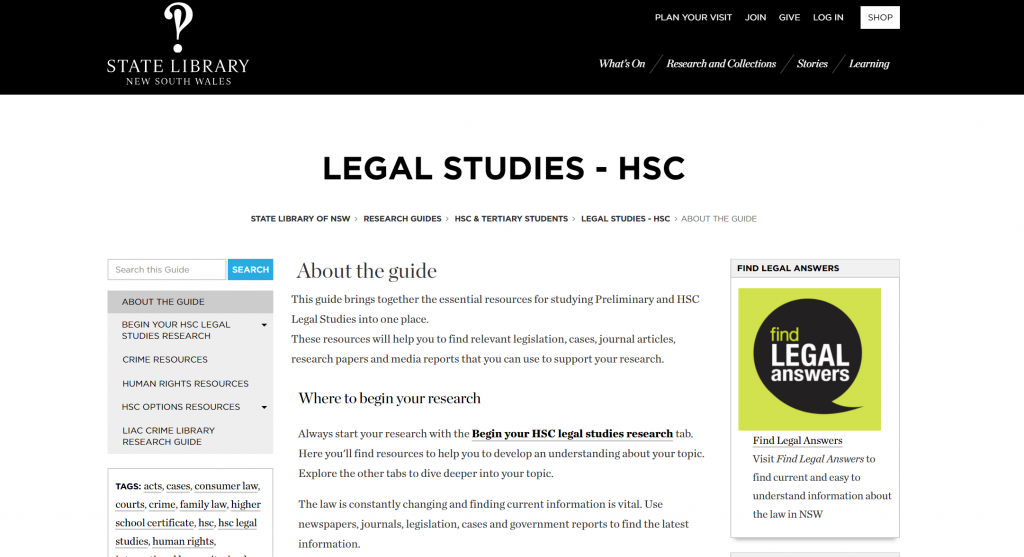If you’re anything like me, you love to procrastinate your way through the holiday break! However, an HSC study plan can really help you get ahead!
Hear me out – yes, holidays are for holidaying BUT they can also be the perfect time to catch up on missed work, write some notes and make sure you’re prepared for the next month, term or even year!
But have no idea what you HSC study plan should look like? You’re in luck!
We’ve created the perfect 14-Day Holiday HSC Study Plan to get you through the break!
So, what are you waiting for? It’s time to get studying!
Why study during the holidays?
Day 1: Know What to Study
Day 2: Creating HSC Style Questions
Days 3 & 4: Filling in Knowledge Gaps
Day 5: Finding Sources and Evidence
Day 6: Quiz Yourself
Day 7: Reassess Your Knowledge
Day 8: Speed Trial and Exam Notes
Days 9 & 10: Complete Practice Papers
Day 11: Test Your Skills
Days 12 & 13: Prepare for the Year Ahead
Day 14: Enjoy the Break!
Why study during the holidays?
For many, the Term 4 – Term 1 Christmas/New Year break is usually the ‘play hard’ component of the ‘work hard, play hard’ and is considered the last ‘real break’ before the HSC.
However there are reasons why almost every NSW State Ranker works ahead of the syllabus during the holidays!
Reason #1: You’ll actually remember stuff when you get to the exam
I can guarantee that in high school, most of us are not coming back and teaching Mum and Dad about everything we learned in class. If anything, most of us are even lucky to get to the ‘reading’ part of the Learning Pyramid most days.
This guide is developed on the two bottom principles: Practice by Doing and Teaching Others (ourselves). This way, you will remember things for your exams without ever having to cram.
Cramming is bad. Don’t cram. You’ll retain nothing.
Reason #2: Class is for Consolidation
At university, the professors typically allocate you readings and material before their weekly lecture where they explore the topic a little more, then use class time to answer questions, discuss ideas and consolidate understanding. It is proven that active engagement in a topic is the best way to retain information which is exactly why universities have been doing this for centuries.
By consolidating your learning through active engagement with your materials (i.e. practice exams, speed runs, scaffolding answers), you can go into class and spend your time discussing and challenging ideas rather than learning them, reaffirming what you know.
Reason #3: You will run out of time before the exam
You will. Trust me.
I haven’t taught one student where their teacher hasn’t said ‘We’ll have to skim over this because we’re running behind and your exam is next week’ for at least one of their subjects which means that there is often content which isn’t fully covered or fully understood.
You can avoid this by doing revision yourself or going through the material before your teacher even gets there.
There are no surprises during the HSC: everything, and I mean everything is based on the syllabus. This means that everything your teacher is teaching you is already out there and waiting for you to go through.
Why Should You Use This HSC Study Plan?
This HSC study plan works best for English and Humanities (science, history, legal studies) and has been developed for you to sit down for approximately three hours to study per day, in 25 minute blocks.
Why 25 minute blocks? It works.
Using this HSC Study Plan, not only will you get your three hours done, it won’t feel that long using the Pomodoro Time Technique!
But first, download your free 14 Day HSC Study Plan!
Download your 14 Day HSC Study Plan Guide, Checklist and Planner here to help you transform the next 2 weeks of summer holidays into productive study time that helps you get ahead!
Day 1: Know What to Study
Before starting your studies, it is important to know what to study.
In class, you will have probably been given a bunch of notifications of things which are due, or will be examined in the next coming term.
1. Figure out your assessments (30 minutes)
You can use the downloadable assessment planner above fill out what assessments or major works need to be done, how much it’s worth, and when it’s due.
Over the next 2 weeks, you will commit 1 x 25 minute blocks to your assessments or major to get it done. Over two weeks, that makes almost seven hours in total!
Break down your assessments into smaller and more manageable sizes to work through with each 25 minute session.
2. Outline your exam dates (10 minutes)
In the exam planner you can download above, you can outline all of your known exam dates for the next term. You can add to this as you go through the term, so keep it handy!
3. Turn the Syllabus as a Content Checklist
Grab your syllabuses for each of your subjects. In Term 4, you will have probably completed, or are near to completing the first topic in your syllabus.
For example, this is what it would look like for Modern History:
Syllabus
But as a Checklist it would look like this:
For your study, you will be going through all the content that needs to be covered, and a bit of working ahead.
4. Organise Your Notes (15 minutes per subject)
If you’ve written notes (which we hope you have!), start matching your notes to a syllabus dot point. Your teachers will only ever teach according to the syllabus, and so your notes should match accordingly.
Once you’ve done that, identify the syllabus points where you have notes, or where you haven’t. Alternatively, identify the areas where you only have a small amount of notes compared to others.
5. Rate Your Understanding (5 minutes per subject)
Go through each dot point and then on a scale of 0 to 5, rate yourself on your perceived level of knowledge and understanding.
- 0 = I know nothing about this dot point and unless I study, I am screwed!
- 5 = I know this dot point back to front; I’m going to kill the exam!
For science, it would look something like this:
For history, your syllabus would look like this:
For the maths syllabus, it should end up looking something like this:
Make Sure You Download Your Free 14 Day HSC Study Plan!
Download your 14 Day HSC Study Plan Guide, Checklist and Planner here to help you transform the next 2 weeks of summer holidays into productive study time that helps you get ahead!
Day 2: Creating HSC Style Questions
We’re not just doing Year 12 – we’re doing the HSC. Thus, it’s best to familiarise yourself with the HSC now rather than later.
1. Write HSC Style Questions (30 – 45 minutes per subject)
The HSC will be all about them asking you questions and you answering them. What better way to revise than having questions to answer!
Write three HSC-style questions for every syllabus points. What would it look like across the different subjects?
English
For English, this would arise from the outline of each module. For example, let’s take the Advanced English Module A outline below:
This would be converted to HSC Style Question: What resonances and dissonances between texts have been revealed through a comparative study?
Click here for more on how to break down HSC English questions to understand how to write your own.
Modern and Ancient History
From the Ancient History Core study: Pompeii and Herculaneum
Syllabus dot point: changing attitudes of Allied and German soldiers to the war over time
This would would be converted to HSC Style Question:“Outline and explain the changing attitudes of Allied and German soldiers to the war over time?”
Legal Studies, Business Studies, Economics
From Legal Studies – Core 1: Crime:
Syllabus dot point
This would would be converted to HSC Style Question:
“Define two situational and two social techniques crime prevention techniques which have developed.”
We’ve written some awesome guides and resources on how to develop your own questions here and here.
Click here for a collection of HSC English Practice Questions!
2. Major Work/Assessment
Commit 1-2 x 25 minute blocks to your major work per day.
Days 3 & 4: Filling in Knowledge Gaps
1. Use the HSC-Style Questions to guide the gaps (5 x 25 minute blocks)
Now that you have three HSC-style questions for each of the syllabus points, start comparing your notes with the questions, spending more time on the syllabus points you gave lower than 3/5 on Day 1 of your HSC study plan.
English
If we take the above question we wrote: What resonances and dissonances between texts have been revealed through a comparative study?
We would need to break it down into the 2 different areas below:
- Resonances between text 1 and text 2
- Dissonances between text 1 and text 2
Your notes should cover each of these different areas to cover the one question. If they don’t, this is where you’ll need to fill in the gaps.
To learn how to break down HSC English questions, check out this article!
Modern and Ancient History
For example, if we are to take the above question:
“Outline and explain the changing attitudes of Allied and German soldiers to the war over time?”
You would then be looking at 6 different issues:
- The attitude of Allied soldiers BEFORE the war;
- The attitude of Allied soldiers DURING the war;
- The attitude of Allied soldiers AFTER the war;
- The attitude of German soldiers BEFORE the war;
- The attitude of German soldiers DURING the war;
- The attitude of German soldiers AFTER the war;
If your notes do not cover these six areas, then your notes need to be filled in!
Legal Studies, Business Studies, Economics
If we were taking the above question again:
“Define two situational and two social techniques crime prevention techniques which have developed.”
You would then be looking at these two areas:
- Situational techniques for preventing crime;
- Social techniques for preventing crime.
Don’t have at least two? Fill it in!
2. Major Work/Assessment
Commit 1-2 x 25 minute blocks to your major work per day.
Day 5: Finding Sources and Evidence
For all writing-based subjects, you will need evidence – whether it’s a excerpts from a novel, a quotation from a historian or a piece of legislation, everything needs to be backed by evidence.
1. Add evidence to each syllabus point (25 minute blocks until complete)
As you work through your notes, identify at least five sources for each syllabus point.
- For English, you would identify a theme for your Prescribed text and write five supporting quotations from the text.
- For Histories, you would identify three pieces of primary evidence and two pieces of secondary evidence to back up each point.
- For Legal Studies, you would identify one case, one legislation and one news article for each syllabus point.
2. Add key words
To ease memory recall, create key words to jog your mind about the main areas of the syllabus point.
For the above point:
“Changing attitudes of Allied and German soldiers to the war over time”
You could use these three key words:
- Excitement
- Doubt
- Disillusionment
Later on, you can create flash cards from these and use them to jog your flash-thinking when revising!
3. Major Work/Assessment
Commit 1-2 x 25 minute blocks to your major work per day.
Day 6: Quiz Yourself
Now that you’ve written HSC-Style Questions, and you’ve done some revision, and brought in some evidence, we’re up to the part of your HSC study plan where you quiz what you do and don’t know!
1. Go through HSC Past Papers
To give yourself an idea of what an HSC Exam would look like, it’s a good idea to have a look at HSC Past Papers to gauge what kind of questions you’ll be expected to answer.
Get two past papers for each subject. As you go through it, use your key words from Day 5 to jot down pointers for each question.
2. Answer 5 HSC-Style questions per subject
Using the rating system from Day 1 Pointer 4, pick five syllabus points and one of the HSC-style questions you wrote. Use your notes to write 100 – 250 word responses.
Mark them according to the following criteria:
- 0/5 – No attempt, or completely incorrect
- 1/5 – Attempt made, but mostly incorrect
- 2/5 – Source listed but no correct fact provided OR correct fact provided by no source
- 3/5 – Sources listed but fact is erroneous OR sources are erroneous but fact is correct
- 4/5 – 2/3 sources are correct and substantiate the fact OR 3/3 sources are correct but fact is erroneous/incorrect
- 5/5 – All sources are listed and correctly substantiate the fact
Anything less than a 3/5 should be revised once more.
3. Major Work/Assessment
Commit 1-2 x 25 minute blocks to your major work per day.
Day 7: Reassess Your Knowledge
1. Have I Improved?
Using the Day 6 Quiz and the HSC Past Papers, go through each syllabus dot point again and then on a scale of 0 to 5, rate yourself on your perceived level of knowledge and understanding.
- 0 = I know nothing about this dot point and unless I study, I am screwed!
- 5 = I know this dot point back to front; I’m going to kill the exam!
The ones where you are scoring below 3/5, you will be focusing on for the next week once more.
2. Look, Cover, Write, Check
It’s what we did in Primary School with spelling, and now we’re doing it again with the HSC!
Put away ALL of your notes and go through the non-annotated syllabus. Write THREE facts for each dot point, and ensure that each dot point is backed up with evidence.
Using the same dot point again:
“Changing attitudes of Allied and German soldiers to the war over time”
These would be your three points:
- Both sides were initially excited and optimistic at the prospect of war – Source, Historian
- As the war transformed into a war of attrition, excitement was replaced by doubt over the potential of their side of winning. – Source, Historian.
- By 1918, both sides of the war were disillusioned with the futility of war and endless destruction. – Source, Historian.
3. Compare your LCWC with your notes
Did you manage to get three evidence-backed facts for each syllabus point? And not just that, how well did you address the dot point? Be honest with yourself as you go through and mark them to this criteria again:
Mark them according to the following criteria:
- 0/5 – No attempt, or completely incorrect
- 1/5 – Attempt made, but mostly incorrect
- 2/5 – Source listed but no correct fact provided OR correct fact provided by no source
- 3/5 – Sources listed but fact is erroneous OR sources are erroneous but fact is correct
- 4/5 – 2/3 sources are correct and substantiate the fact OR 3/3 sources are correct but fact is erroneous/incorrect
- 5/5 – All sources are listed and correctly substantiate the fact
Anything less than a 3/5 should be revised once more.
4. Major Work/Assessment
Commit 1-2 x 25 minute blocks to your major work per day.
Day 8: Speed Trial and Exam Notes
During the HSC and exams, you will be under the pump, which means that your memory recall will need to be good. How do you develop good memory recall?
1. Do a speed run
Using a non-annotated syllabus, write your three key words down next to every single dot point without looking. If you can’t remember a point, highlight the dot point and move on. This is helpful for you to know whenever you revise.
2. Write exam notes
Yes, exam notes and study notes are different, and even if you don’t use them, exam notes are very helpful for revision.
Limit yourself to three one-sided pages for each topic, and use your three key words to help guide you through what to write for each syllabus point.
Sometimes writing out notes on just isn’t your style, so feel free to mix it up a little according to your learning style.
3. Major Work/Assessment
Commit 1-2 x 25 minute blocks to your major work per day.
Days 9 & 10: Complete Practice Papers
Now that you’ve done a week of revision, it’s time to see whether your efforts throughout your HSC study plan are paying off!
1. Create the HSC Practice Papers
Using the HSC-style questions you developed on Day 2, put together an HSC Practice Paper with questions of varying difficulty with different mark allocations. Use an actual past paper to help guide you with this.
2. Quiz Yourself
Complete the practice exam paper with your exam notes using the -10% rule. If you’ve got your 10 mark essay question which is usually done in 45 minutes, give yourself only 40 minutes to complete it.
Make note of where you had to refer to your exam notes – this will give you a good indication of where you need to practice your memory recall for a particular section.
Mark your practice exam according to the HSC Marking Criteria. Be honest! It’s the only way you’ll learn.
3. Major Work/Assessment
Commit 1-2 x 25 minute blocks to your major work per day.
Day 11: Test Your Skills
1. Scaffold your extended responses
Using your notes, create a scaffold for the major extended response sections of the HSC Practice Papers.
There are loads of different techniques out there to help you scaffold your answers, but these are the ones that we at AOS use:
English
You can read more about how to implement STEEL in your English response here!
Modern and Ancient History
You can read more about how to implement the OMCAPUR scaffold here!
2. Wrap your head around the difference between the different Bands
There are many elements which differ a Band 4 from a Band 6 and it’s good to familiarise yourself with what makes a Band 6 response against a Band 4 or 5, especially using a Marking Criteria.
It will look something like this:
You can read more about the difference between bands in English here!
3. Write your extended response
Most extended responses require you to spend anywhere between 10 – 40 minutes on them depending on the exam. Using your notes and the scaffold, give yourself 1.5x the given amount. If you’re supposed to spend 10 minutes, using your materials, spend 15 minutes and construct an answer which you know is going to be a Band 6 response.
Like always, remember to mark your response with this scale:
- 0/5 – No attempt, or completely incorrect
- 1/5 – Attempt made, but mostly incorrect
- 2/5 – Source listed but no correct fact provided OR correct fact provided by no source
- 3/5 – Sources listed but fact is erroneous OR sources are erroneous but fact is correct
- 4/5 – 2/3 sources are correct and substantiate the fact OR 3/3 sources are correct but fact is erroneous/incorrect
- 5/5 – All sources are listed and correctly substantiate the fact
Anything less than a 3/5 should be revised once more.
4. Major Work/Assessment
Commit 1-2 x 25 minute blocks to your major work per day.
Days 12 & 13: Prepare for the Year Ahead
So we’ve been talking about getting ahead – how do you know what you should study? Easy. Use the syllabus. I know I sound like I’m on repeat, but I’m serious.
1. Plan your goals
If you haven’t already, it’s important to plan your goals, both long term and short term in order to have something to work towards. Why is this important? Because the HSC is a marathon, not a sprint, and sometimes you will lose sight as to what you are working towards.
Make sure you dedicate some time to develop long and short term goals with this guide here.
2. Familiarise yourself with the topic areas
If you’re going into uncharted territory, it’s time for you to wrap your head around what you’re about to do. Chances are your teacher told you what electives or topics you’d be studying at the beginning of the year so all you need to do is head straight to the syllabus to get a general overview of the topic.
For English
1. Read the texts
Don’t be one of those people who goes through the whole of Year 12 using SparkNotes instead of reading the book. I hated studying Romanticism for English Extension 1, and I particularly hated studying Samuel Taylor Coleridge simply because it was the HSC. Little did I know that The Rime of the Ancient Mariner would actually be one of my favourite poems when I actually read it.
For all levels of English, you will have your prescribed text for whichever elective your teacher has allocated you. During the Term, I can guarantee you that you will not have time to read the book, so start reading all of your texts during the break.
You may not remember everything about your texts – I didn’t, but when you get to completing Module C in Term 3, hopefully you’ll have remember something from Th Crucible or the Curious Incident or whatever text you’ve been prescribed!
2. Look up syllabus focus, terms and definitions
Sometimes the syllabus can be a bit wordy, and though you may think you know the definition of a word, chances are you just know it by inference rather than knowing the actual definition.
Each module will come with a brief description of the focus of the module like so:
Underline anything that would have a deeper meaning in the context of English.
3. Find possible related texts
This does not mean having to lock in whatever you have found. This should be easy once you’ve done the first two items because then you’ll have an idea of what to look for.
We’ve written an awesome guide on how to find an awesome related text to help you shortlist and choose a text, and the do’s and don’t’s of selecting one.
For Modern and Ancient History
Your syllabus should look something like this for Modern History – Part II (National Study):
Best place to start? Wikipedia. So long as you’re not using it as an academic resource, it’s an excellent place to start to wrap your head around the issues.
A quick search down the ‘History of India‘ Wikipedia page reveals a pretty nice place to start:
And as you look through your Syllabus, you’ll probably recognise some key dates and individuals too:
For Legal Studies, Business Studies and Economics
For Humanities, your teacher will assign your electives.
Legal Studies:
For a most part, humanities is theoretical with a single mainstream doctrine with peripheral theories – however many of these terminologies and theories differ according to your geographical location.
For example, if you do a quick Google search on ‘World Order’, you’ll either get the band (though they are amazing!) or the conspiracy theory (which is also kind of cool).
Instead, the NSW State Library will absolutely be your saving grace as they have research guides for all HSC Legal Studies electives.
3. Major Work/Assessment
Commit 1-2 x 25 minute blocks to your major work per day.
Day 14: Enjoy the Break!
Give yourself a break! Remember to always wind down and look after yourself. Enjoy the last day of freedom! And that wraps up out 14 day study plan – good luck!
Are you looking for a tutor to help you ace the HSC?
We pride ourselves on our inspirational coaches and mentors!
We offer tutoring and mentoring for Years K-12 in a large variety of subjects, with personalised lessons conducted one-on-one in your home or at our state of the art campus in Hornsby!
To find out more and get started with an inspirational tutor and mentor get in touch today!
Give us a ring on 1300 267 888, email us at [email protected] or check us out on Facebook!
Elizabeth Goh isn’t a fan of writing about herself in third person, even if she loves writing. Elizabeth decided she didn’t get enough English, History or Legal Studies at Abbotsleigh School for her own HSC in 2010 so she came back to help others survive it with Art of Smart Education. She’s since done a mish-mash of things with her life which includes studying a Bachelor of Arts (Politics and International Relations) with a Bachelor of Laws at Macquarie University, working for NSW Parliament, and is trying to figure out what to do with her life when there is no Season 2 of Deutschland 83 yet.


